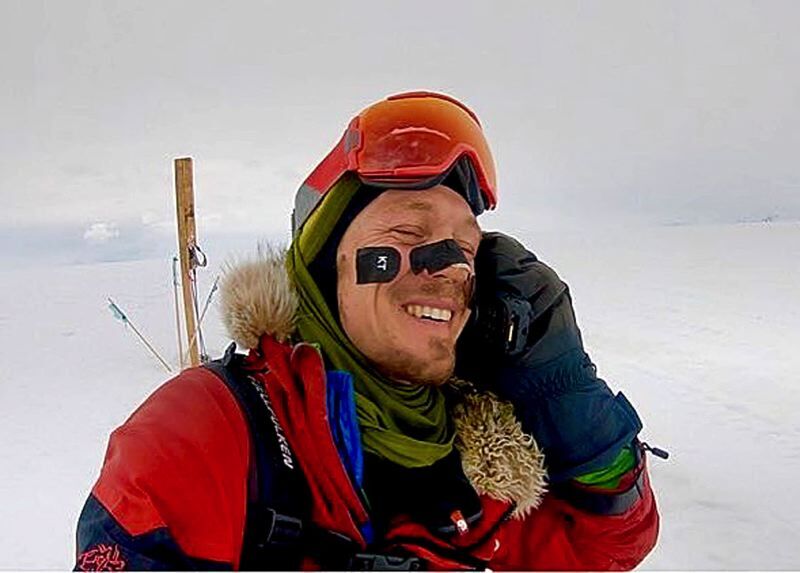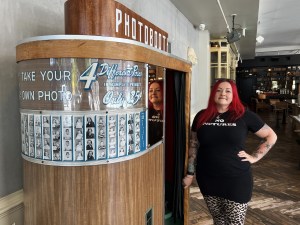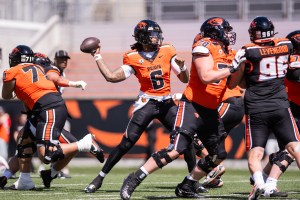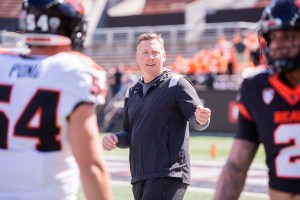Portland’s O’Brady finishes ‘Ultramarathon’ Antarctica trek
Published 12:00 am Wednesday, December 26, 2018

- Portland endurance athlete Colin O'Brady made a phone call Wednesday, Dec. 26, after completing a trek across Antarctica.
Portland’s Colin O’Brady has done it again.
Trending
The endurance athlete added to his extensive list of accomplishments by completing the self-described “Impossible First” trek across Antarctica — 921 miles by skis and unattended and unassisted by wind — in 53 days, according to published reports and the GPS tracker on his website, http://www.colinobrady.com.
The New York Times, which featured O’Brady in a Nov. 11 story, shortly after his departure, reported Wednesday, Dec. 26, that O’Brady covered the final 77.54 miles in a 32-hour burst to the end, without sleeping to become the first person to traverse Antarctica from coast to coast solo, unsupported and unaided by wind.
The Times reported that O’Brady took only one day off, Nov. 29, in order to fix a ski.
Trending
O’Brady, 33, and British Army Capt. Louis Rudd, 49, each set out to traverse the Antarctica. Rudd was presumably still making the trek.
“People have been trying to do this for 100 years, and nobody has successfully done it,” O’Brady told the Times before his trip. “And here are two guys both pushing each other to hopefully conquer an impossible feat.”
O’Brady, who lives in Portland with wife Jenna Besaw, holds speed records in the Explorers Grand Slam (climbing highest peaks on every continent) and 50-State High Peaks (climbing highest peaks in each state). He’s also traversed Greenland in 2018.
Besaw serves as his expedition operations and media manager.
On his , O’Brady wrote that he was “delirious” and “hadn’t slept yet” after completing the grueling trip in 32 hours and 30 minutes.
“Day 54: FINISH LINE!!! I did it! The Impossible First! 32 hours and 30 minutes after leaving my last camp early Christmas morning, I covered the remaining ~80 miles in one continuous “Antarctica Ultramarathon” push to the finish line. The wooden post in the background of this picture marks the edge of the Ross Ice Shelf, where Antarctica’s land mass ends and the sea ice begins. As I pulled my sled over this invisible line, I accomplished my goal: to become the first person in history to traverse the continent of Antarctica coast to coast solo, unsupported and unaided. While the last 32 hours were some of the most challenging hours of my life, they have quite honestly been some of the best moments I have ever experienced. I was locked in a deep flow state the entire time, equally focused on the end goal, while allowing my mind to recount the profound lessons of this journey. I’m delirious writing this as I haven’t slept yet. There is so much to process and integrate and there will be many more posts to acknowledge the incredible group of people who supported this project. But for now, I want to simply recognize my #1 who I, of course, called immediately upon finishing. I burst into tears making this call. I was never alone out there. @jennabesaw you walked every step with me and guided me with your courage and strength. WE DID IT!! We turned our dream into reality and proved that The Impossible First is indeed possible. ‘It always seems impossible until it’s done.’ — Nelson Mandela. #TheImpossibleFirst #BePossible”
Unlike Rudd, O’Brady was documenting the trip on social media, as reports can be read on his Instagram account and at http://www.colinobrady.com.
According to the Times’ Dec. 26 news story, O’Brady’s feat ranks in historical perspective along with expeditions led by Norway’s Roald Amundsen and by Robert Falcon Scott of England, who battled to become the first to reach the magnetic South Pole (Amundsen was first). Borge Ousland became the first to cross the continent alone and unsupported in 1996-97 (Ousland used kites and wind).
O’Brady started from the Ronne Ice Shelf and went through the Ross Ice Shelf and on to the finish at Leverett Glacier. Rudd was leading him early, but O’Brady caught him and took the lead, according to the Times.







